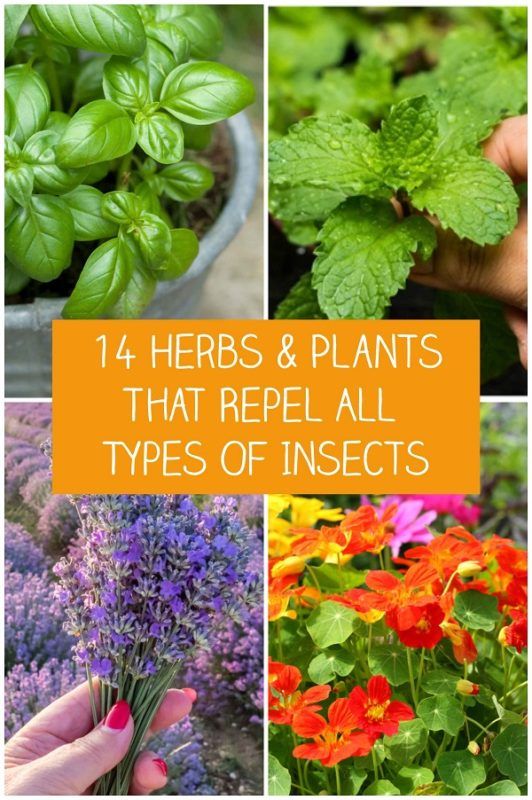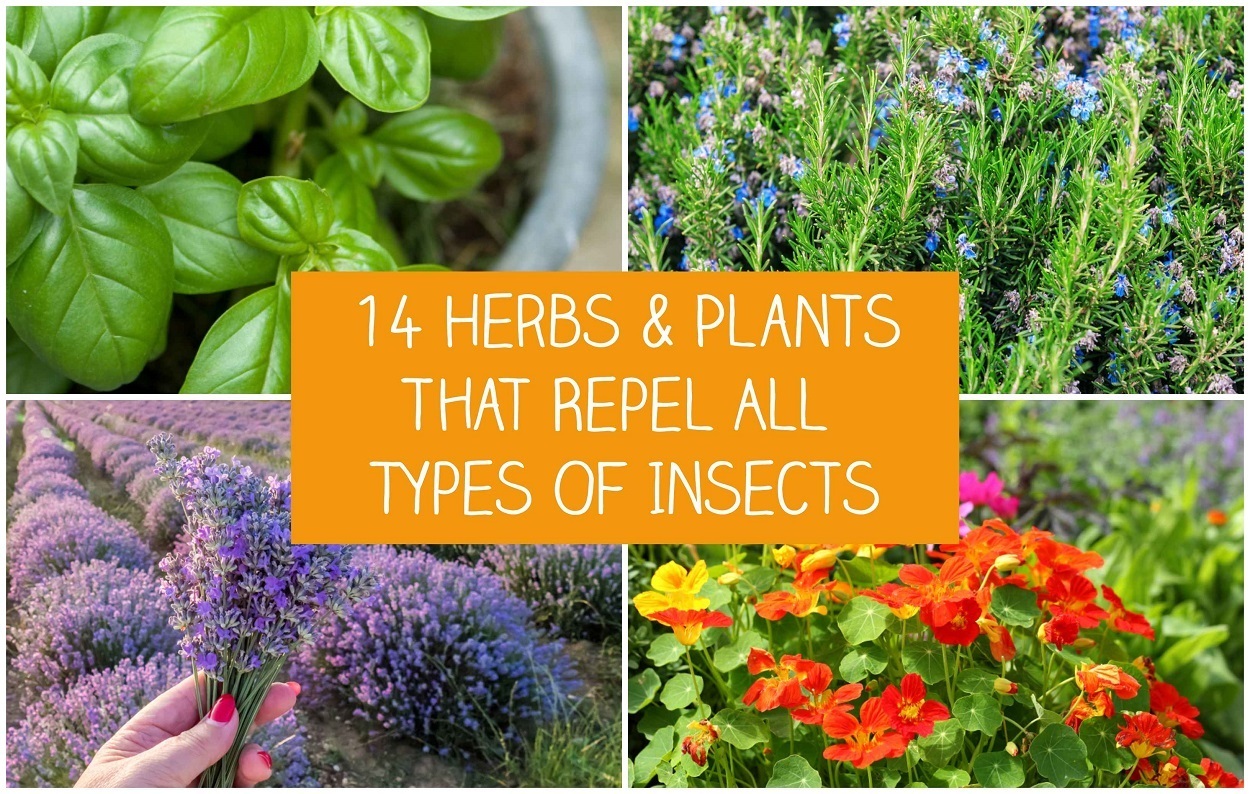
Now that summer is in full swing you may find yourself wanting to enjoy your outdoor spaces. Perhaps you like to swim, hike, garden, boat or just sit under a tree and read a book.
Regardless of what your favorite summertime pursuit is, you may find that you are burdened by all sorts of insects, including mosquitoes, fleas, spiders, moths, flies, ants, roaches and more.
There is no doubt about it, insects of all kinds can be tremendously pesky, especially if they show up at unwanted times, in unwanted places like your garden or outdoor living spaces.
While there are a number of chemical options for eradicating mosquitoes and other insects, these can be dangerous to your health and the health of your family and animals.
To keep things all natural, try these herbs and plants that repel insects, while also adding beauty and aromas to your garden, so that you can reclaim your personal spaces and enjoy time outdoors.
1. Basil
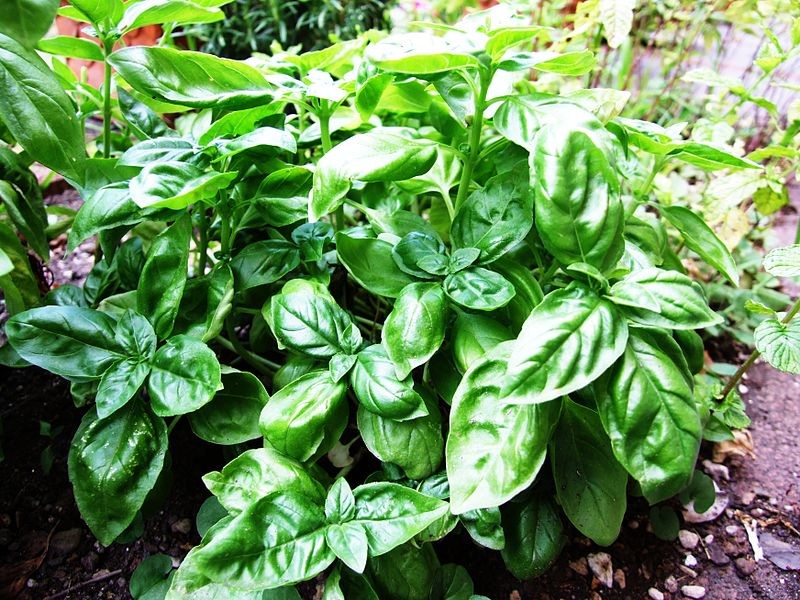
Not only is basil a delicious culinary herb but its rich aroma is despised by mosquitoes and flies.
Plant basil in containers and place them by the entrance ways of your home as the first line of defense. Pinch off your basil often and use in soups, salads, and other recipes. You can also make your own natural insect repellent spray.
Basil Insect Repellent Spray
- Add 6 ounces of fresh and clean basil leaves to a bowl
- Pour 4 ounces of boiling water on top of leaves and let sit for three hours
- Remove all leaves, squeezing out moisture
- Mix in 4 ounces cheap vodka
- Store in refrigerator – spray before going outdoors
Read Next: How To Grow A Giant Basil Bush
2. Lemongrass
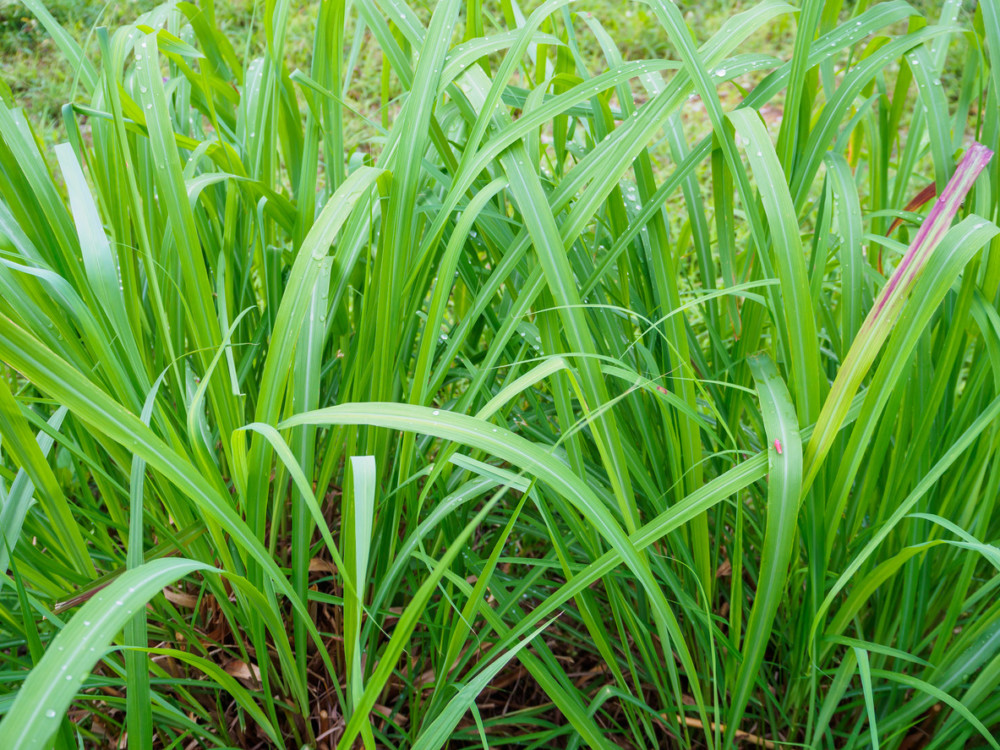
You are more than likely familiar with citronella – a popular oil used in many mosquito repellent products.
This natural oil is derived from lemongrass, an ornamental plant that grows all year in Florida and other tropical climates and is an annual most other places where it grows well in pots or in the ground in a sunny location with good drainage. I like to plant lemongrass around my patio and on my front porch to keep mosquitoes away.
Don’t forget to enjoy the wonderful flavor of lemongrass in soups, chicken and pork dishes.
3. Chrysanthemums (mums)
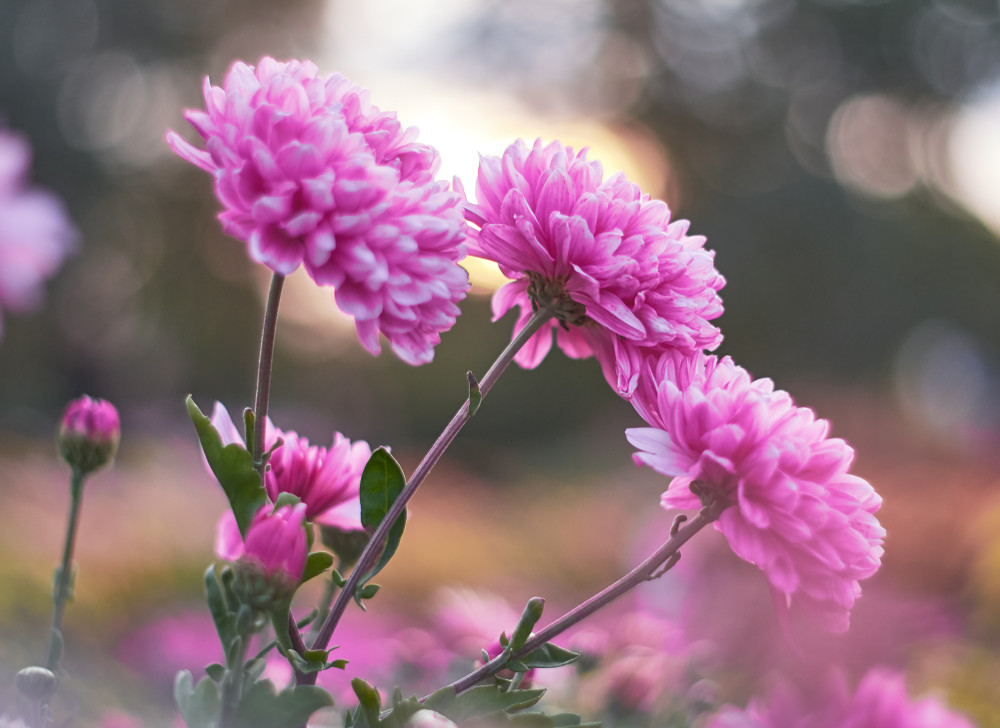
These beautiful plants that are revered for their stunning fall flowers. However, they are also an effective insect repellent and can keep ticks, silverfish, lice, bed bugs, spider mites, Japanese beetles, ants, roaches, root-knot nematodes, and harlequin bugs from becoming a nuisance.
Mums contain a potent ingredient called pyrethrum which is commonly used in garden insecticides, household sprays, and pet shampoos.
Pick flowers when they are at their fullest, leave them to dry in a cool, dark place with plenty of ventilation and crush them up for an insect deterrent powder.
4. Petunias
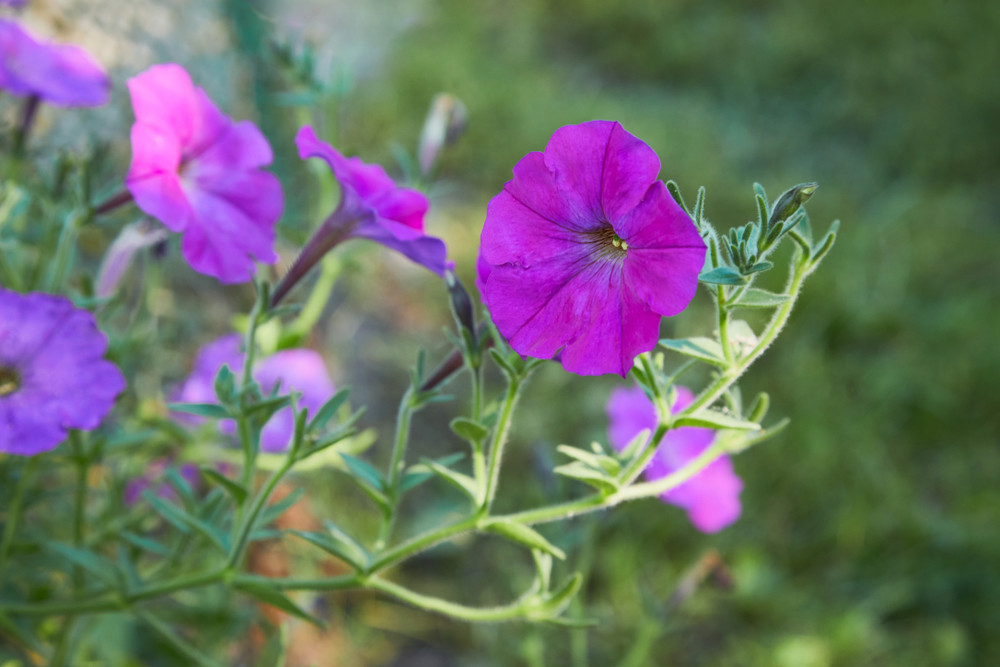
These dainty little annuals not only liven up your landscape but also will keep aphids, asparagus beetles, leafhoppers, squash bugs and tomato hornworms away.
Add some petunias to your veggie garden and not only will they add color but also a strong line of defense. I always keep mixed pots with plenty of petunias around my patio and porch areas.
5. Mint
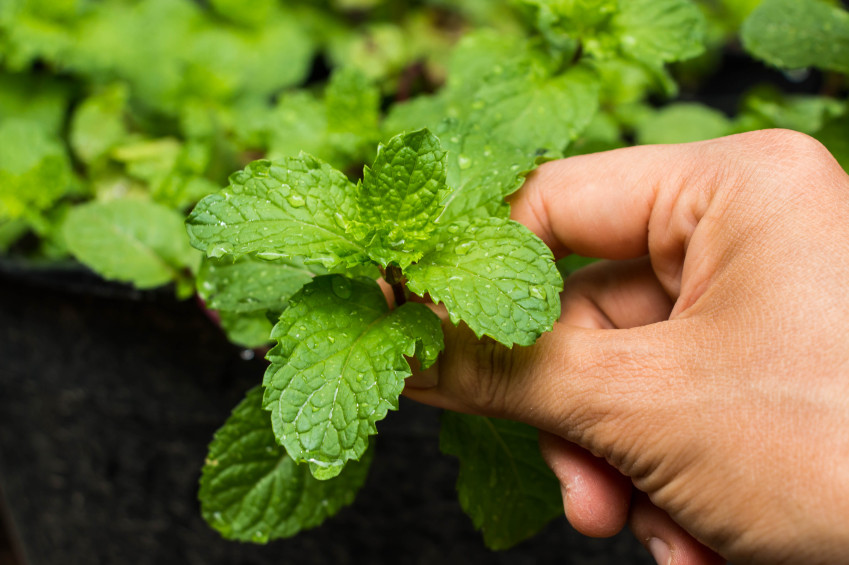
Mint is by far one of the most effective natural pest control options, particularly for ants, flies and mosquitoes. The nice thing about mint is that you can use it in a variety of ways for safe and natural pest deterrent.
I recommend keeping pots of mint around your doors and on patios and porches.
Mint has a very aggressive growth habit and will quickly take over any garden space if you let it.
If you want to plant mint in the ground, the best way to do it is to put it in a coffee pot without a bottom. This will restrain the growth. Here are some other ideas on how to use mint to repel insects:
- To control pests inside the house: Crush some mint leaves and place them in a small piece of cheesecloth and tie. Put them in areas of your home where you need help controlling pests.
- Insect repellent: Cut some fresh mint leaves and put them in a small pan with a few orange and lemon peels. Cover them with water and bring to a boil. Let the mixture sit for at least 12 hours and strain. Mix equal parts mint infused water and rubbing alcohol. Use in a spray bottle.
6. Rosemary
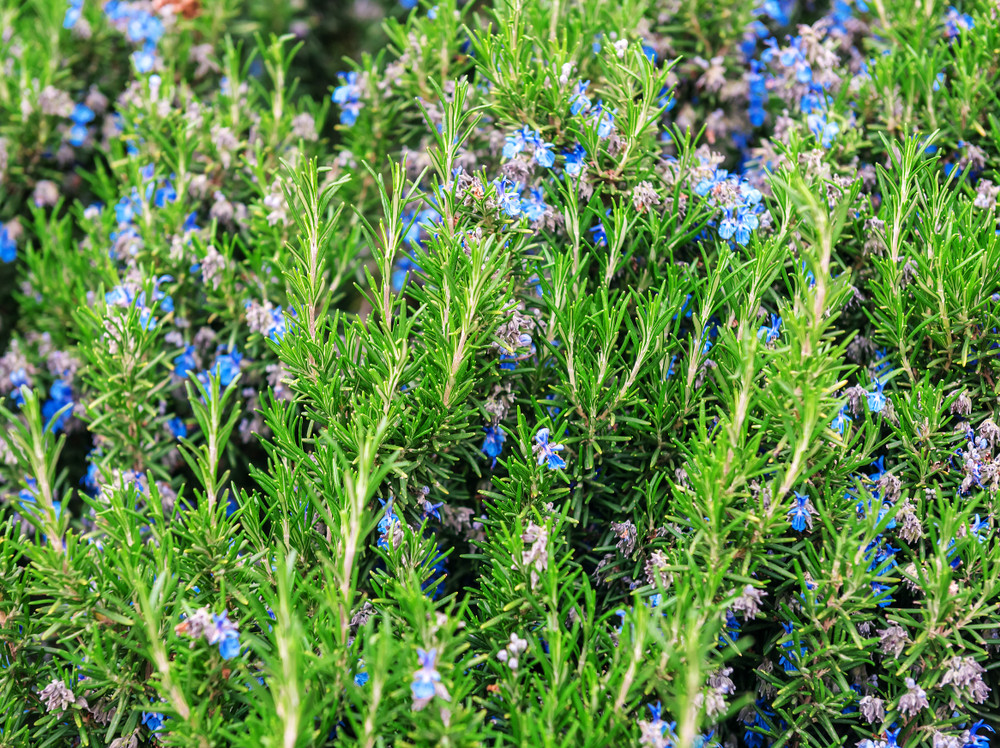
Rosemary, a member of the mint family, has a pleasing aroma and is a popular culinary herb that is also an effective deterrent for mosquitoes and other insects that like to munch on garden plants along with spiders.
Use rosemary as a landscape plant around your home, garden, and outdoor living areas. I like to put rosemary in pots on my outdoor tables and on my patio.
Make a simple insect spray by boiling 1 quart of dried rosemary in a quart of water for 30 minutes. Strain the liquid into a half gallon container filled with one quart of cooled water.
Put the rosemary water into the refrigerator and transfer to spray bottles. Use the deterrent when you go outside. I also like to spray around my window screens.
Read Next: 14 Natural Ways To Keep Flies Out Of Your Home & Garden
7. Lavender
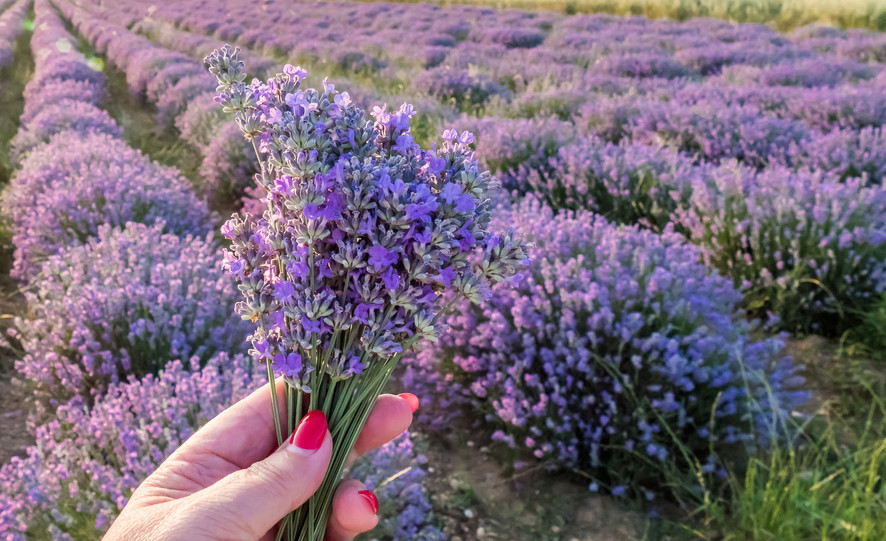
Lavender is another one of those familiar and comforting herbs that have been used for a long time to sweeten drawers, closets, and homes and keep moths from infesting clothes in attics, closets, and chests.
While you may love the smell of lavender, a number of insects hate it including ants, flies, mosquitoes, and fleas.
One of my favorite ways to use lavender as an insect deterrent is to cut some fresh sprigs and tie them together and hang the bunch around my doorways and on my patio. I also plant lavender around my home and in pots in outdoor spaces.
8. Catnip
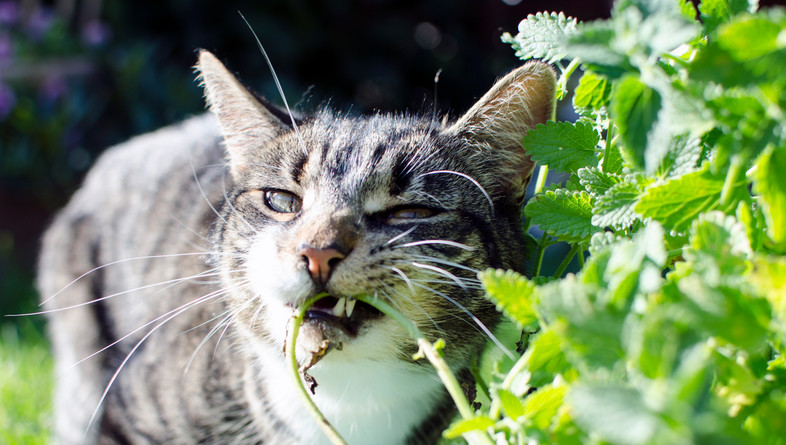
Catnip is a perennial herb that is also a member of the mint family that can grow up to three feet high.
The leaves and stems of the plant contain a compound called nepetalactone that is a stimulant to cats and produces a high. I have always enjoyed planting some catnip in my gardens for my cats to enjoy.
Besides being a great treat for your cats, catnip also puts up a strong defense against some annoying insects including roaches. In fact, research from Iowa State University concluded that the essential oils in catnip are more effective at keeping roaches away then the commercial repellent, DEET.
To keep roaches away you can place catnip leaves around the house or soak some leaves in hot water to make a tea. Pour the tea in a spray bottle and spray areas where you see roaches.
You can easily make your own bug spray that will work against mosquitoes and other flying insects. Here are two of my favorite recipes. The second takes just a bit longer to make.
Catnip Bug Spray
- Remove a few mature stalks
- Remove leaves from the stalks and cut into small pieces
- Place the pieces in a blender or food processor and make pulp
- Pour two cups of boiling water over the pulp and let steep for ten minutes
- Strain the solution into a spray bottle
- Store the spray in the refrigerator until you are ready to go outside – spray on clothing for protection
Catnip and Vinegar Bug Spray
- Mix 2 cups of catnip leaves with 3 cups of rice vinegar in a quart size mason jar.
- Store the jar in a dark place for about two weeks
- Strain the mixture and put into a spray bottle and refrigerate. Use on your skin and clothing to keep pests away
More Herbs & Plants With Insect Repellent Properties
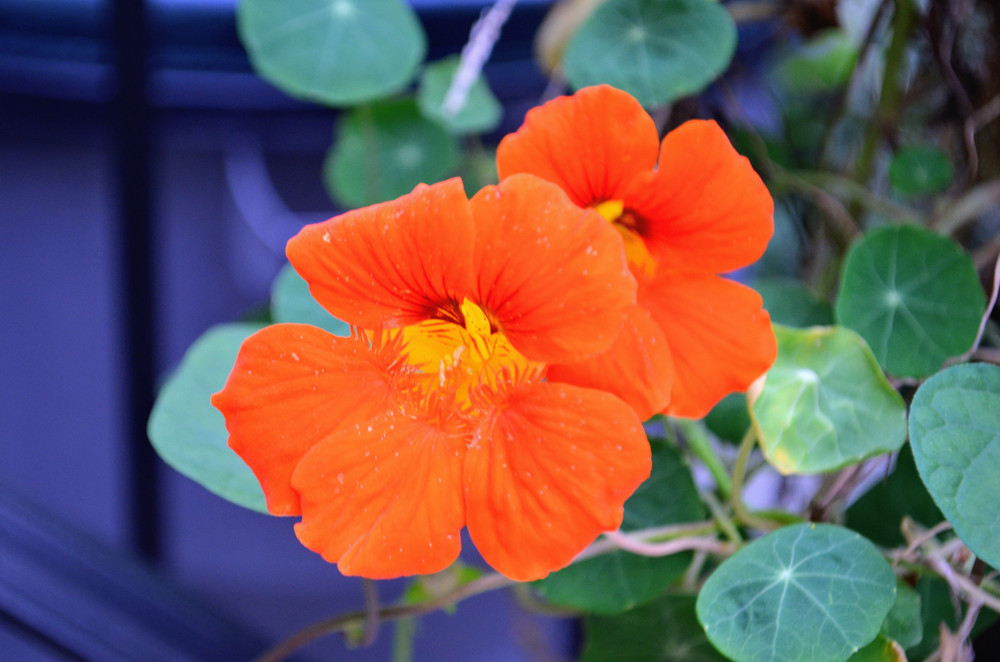
9. Nasturtiums – These old-time favorites repel whiteflies, aphids, cabbage loopers, squash bugs, aphids and beetles
10. Chives – Are a great deterrent for flies, Japanese beetles, and aphids
11. Dill – Repels aphids, spider mites, cabbage loopers, squash bugs and tomato hornworms.
12. Oregano – Oregano is a flowering plant in the mint family that will help keep mosquitoes away. This culinary favorite does well in pots or raised beds.
13. Bee Balm – Bee balm is a favorite perennial plant of butterflies, hummingbirds, and bees but not mosquitoes.
14. Eucalyptus – Eucalyptus is a tree that is very effective at repelling a wide range of pests such as spiders.
Pin This To Save For Later
